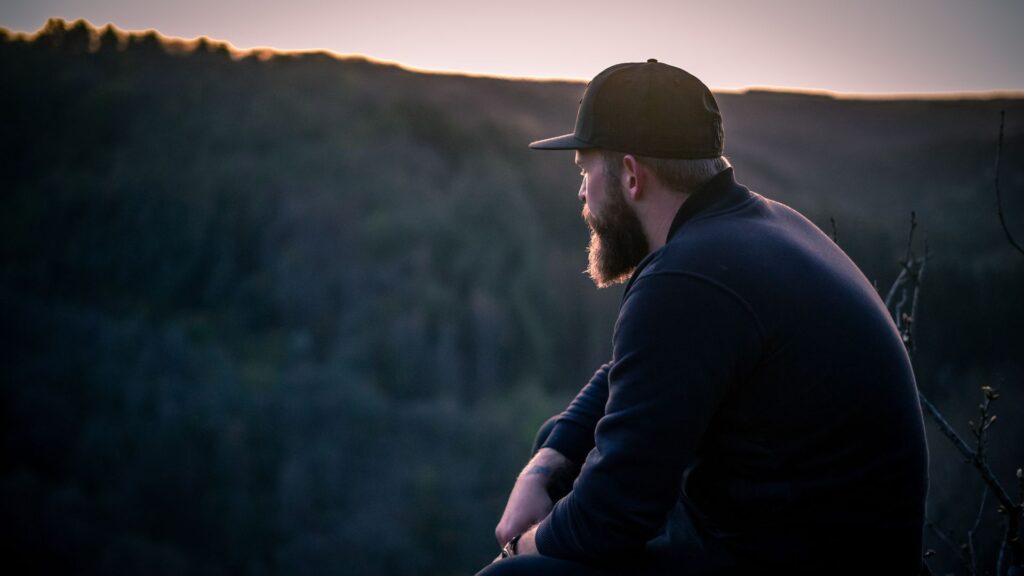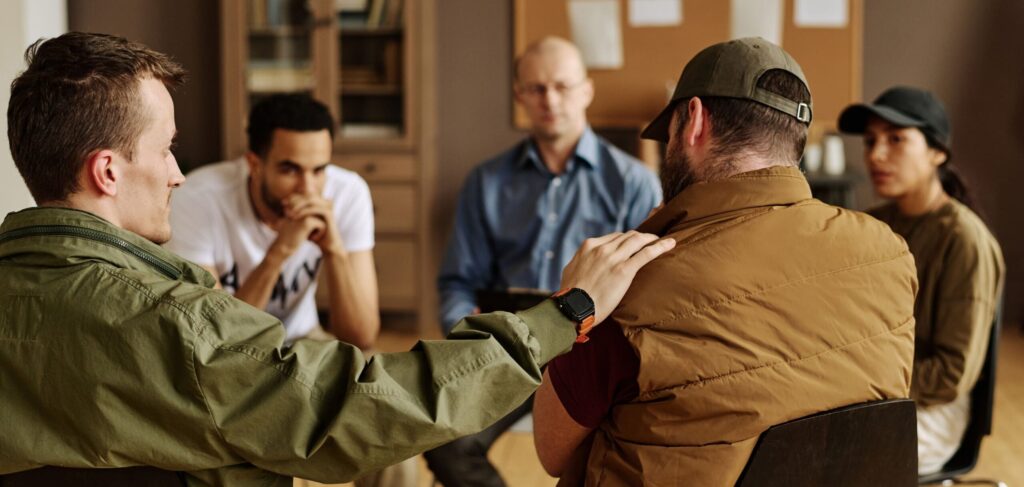PTSD Treatment in Boulder, Colorado
Post-Traumatic Stress Disorder (PTSD) is a deeply challenging mental health condition. It can impact anyone who has experienced or witnessed a traumatic event. Whether you’re struggling with PTSD yourself or you’re concerned about a loved one, finding the right support can feel overwhelming. However, you don’t have to face this journey alone. At Flatirons Recovery, we specialize in PTSD treatment in Boulder, Colorado, offering a range of personalized therapies designed to help you reclaim your life and well-being. Understanding the complexities of PTSD is the first step toward recovery, and our team of experienced professionals is here to guide you through every step of your healing journey.
What Exactly is PTSD?
Post-Traumatic Stress Disorder (PTSD), is a mental health condition triggered by experiencing or witnessing a traumatic event. This could be anything from a serious accident, natural disaster, or combat exposure to personal assaults such as domestic violence or abuse. PTSD is not just about the event itself but how the brain and body respond to it.
People with PTSD often experience intense, disturbing thoughts and feelings related to their traumatic experiences long after the event has ended. According to the National Institute on Mental Health (NIMH), symptoms usually begin within 3 months of the traumatic event. These symptoms can include flashbacks, nightmares, severe anxiety, and uncontrollable thoughts about the event.
PTSD can significantly interfere with daily life, affecting relationships, work, and overall well-being. While the severity and duration of symptoms can vary, it’s essential to recognize when professional help is needed. Finding effective PTSD treatment in Colorado can be the first step toward reclaiming your peace of mind and overall well-being.
Trauma vs PTSD Explained
It’s important to understand that not everyone who experiences trauma will develop PTSD. Trauma is the emotional response to an event like an accident, assault, or natural disaster. Trauma can manifest as shock and denial immediately after the event, followed by longer-term reactions such as unpredictable emotions, flashbacks, strained relationships, and even physical symptoms like headaches or nausea.
However, when these symptoms persist and begin to disrupt one’s ability to function normally over a prolonged period, it may indicate PTSD. The key difference lies in the duration and intensity of the symptoms. So, while trauma can lead to a range of emotional and physical responses, PTSD is a more severe, chronic condition that requires specialized treatment. The serene setting of our PTSD rehab in Boulder, Colorado, offers the perfect backdrop for focusing on recovery.

Common Causes of PTSD
Understanding the common causes of PTSD is crucial for effective treatment. PTSD can develop after exposure to a wide variety of traumatic events, including:
- Combat and Military Experience: Veterans often face combat situations that can lead to PTSD. Symptoms may not emerge until years after service.
- Physical Assault or Abuse: Experiences such as domestic violence, childhood abuse, or sexual assault are significant risk factors for PTSD.
- Accidents: Car crashes, workplace accidents, or other sudden, life-threatening events can also trigger PTSD.
- Natural Disasters: Surviving a natural disaster like a hurricane, tornado, or earthquake can leave individuals with debilitating PTSD.
- Witnessing Traumatic Events: Even if not directly involved, witnessing violence or a traumatic event can lead to PTSD.
Additionally, repeated exposure to traumatic situations, such as for first responders or healthcare workers, can also contribute to the development of PTSD.
Signs and Symptoms of PTSD
PTSD symptoms can be broadly categorized into four types: intrusive memories, avoidance, negative changes in thinking and mood, and changes in physical and emotional reactions. These symptoms vary in intensity and may fluctuate over time.
- Intrusive Memories: These include recurrent, unwanted distressing memories of the traumatic event, reliving the traumatic event (flashbacks), and severe emotional distress or physical reactions to reminders of the traumatic event.
- Avoidance: Avoiding places, people, and activities that remind you of the trauma is common. As is avoiding talking or thinking about the traumatic event.
- Negative Changes in Thinking and Mood: This involves feelings of hopelessness, negative thoughts about yourself or others, memory problems, and a loss of interest in activities you once enjoyed.
- Changes in Physical and Emotional Reactions: Also known as arousal symptoms, these include being easily startled, always being on guard for danger, trouble sleeping, and irritability or aggressive behavior.
Recognizing these symptoms in yourself or a loved one is crucial for seeking timely help and receiving the appropriate PTSD treatment in Boulder, Colorado.
Different Types of PTSD
While PTSD is generally categorized under one umbrella, different forms of PTSD can manifest depending on the individual’s experiences and symptoms:
- Acute Stress Disorder (ASD): Symptoms appear within a month of the traumatic event and can last from three days to one month. If symptoms persist beyond a month, it may be diagnosed as PTSD.
- Uncomplicated PTSD: This form of PTSD involves re-experiencing the trauma through flashbacks and nightmares, avoidance of reminders of the trauma, and heightened emotional responses.
- Complex PTSD: Often associated with prolonged or repeated trauma, such as ongoing abuse or captivity, complex PTSD can include additional symptoms like severe emotional dysregulation, difficulty with relationships, and negative self-perception.
- Comorbid PTSD: Individuals with PTSD often have additional mental health disorders such as depression, or anxiety, which require integrated treatment approaches. Also, PTSD and addiction often co-occur.
- PTSD with Delayed Expression: In some cases, symptoms of PTSD do not appear until at least six months after the traumatic event.
Understanding the type of PTSD can help tailor the treatment approach to the specific needs of the individual. Thereby, ensuring they receive the most effective care.

How We Treat PTSD in Boulder, Colorado
At our Colorado PTSD treatment center, we offer comprehensive and personalized care designed to meet the needs of each individual. Our approach to PTSD treatment in Boulder, Colorado, focuses on addressing both the psychological and physiological aspects of the disorder. Thus, providing a holistic path to recovery.
We understand that PTSD can be a deeply isolating and debilitating condition, which is why our center is designed to be a safe, supportive, and welcoming environment. Here, you’ll find a team of experienced therapists and clinicians who are committed to helping you heal and regain control over your life.
Therapies We Use for Treating PTSD
Effective PTSD treatment often requires a combination of therapies that are tailored to the individual’s specific needs. At our PTSD rehab in Boulder, Colorado, we offer a range of evidence-based therapies, including:
- Cognitive Behavioral Therapy (CBT): This form of therapy helps individuals identify and challenge negative thought patterns and behaviors related to their trauma.
- Eye Movement Desensitization and Reprocessing (EMDR): EMDR is particularly effective for treating PTSD, helping individuals process and integrate traumatic memories in a way that reduces their emotional impact.
- Trauma-Focused Cognitive Behavioral Therapy (TF-CBT): A specific type of CBT that focuses on the trauma and its effects on the individual.
- Group Therapy: Sharing experiences and learning from others in a supportive group setting can be incredibly beneficial for those signs and symptoms of PTSD.
- Medication Management: In some cases, medications such as antidepressants or anti-anxiety medications may be prescribed to help manage symptoms.
- Mindfulness and Stress Management Techniques: These practices help individuals develop coping strategies to manage stress and anxiety related to PTSD.
The Importance of Seeking Help With PTSD
Reaching out for support is crucial because the condition rarely improves on its own and can lead to significant impairments in daily life. Untreated PTSD can result in worsening symptoms, increased risk of substance abuse, and a heightened likelihood of developing other mental health disorders such as depression or anxiety. Seeking treatment for PTSD and addiction together can significantly improve outcomes, as both conditions are closely related and often require integrated care approaches.
Moreover, PTSD doesn’t just affect the individual; it can strain relationships and disrupt family dynamics. Professional treatment provides the tools and support needed to heal and rebuild a healthy, fulfilling life. Whether you’re looking for help for yourself or a loved one, it’s important to remember that seeking help with PTSD is a sign of strength, not weakness. Our PTSD treatment in Boulder, Colorado is waiting with open arms to give you the tools necessary to achieve the lasting wellness you deserve.
How to Help a Loved One Struggling With PTSD
Supporting a loved one who has debilitating PTSD can be challenging, but your understanding and patience can make a significant difference in their recovery journey. Here are some ways you can help:
- Educate Yourself: Understanding PTSD and its effects can help you better support your loved one. Learn about the symptoms, triggers, and treatment options available.
- Encourage Professional Help: Gently encourage your loved one to seek professional PTSD treatment in Colorado. Offer to help them find a treatment center or accompany them to their appointments.
- Be Patient and Understanding: Remember that recovery from PTSD takes time. Be patient, listen without judgment, and offer consistent support.
- Create a Safe Environment: Help your loved one feel safe by avoiding triggers and creating a calm, supportive environment.
- Take Care of Yourself: Supporting someone with PTSD can be emotionally draining. Make sure you also take care of your own mental and physical health.
Reach Out for Compassionate PTSD Treatment in Boulder, Colorado
PTSD can be an incredibly debilitating condition, but with the right support and treatment, recovery is possible. At our Colorado PTSD treatment center, we are dedicated to providing compassionate, personalized care to help you or your loved one overcome the challenges of PTSD. Whether you are looking for luxury PTSD treatment centers or simply a safe place to start your healing journey, our team in Boulder, Colorado, is here to help every step of the way.
Reach out today to learn more about our PTSD treatment in Boulder, Colorado, and how we can support your journey toward recovery. Taking the first step can be difficult, but it’s the most important one you’ll ever take. Let us help you reclaim your life and health.
